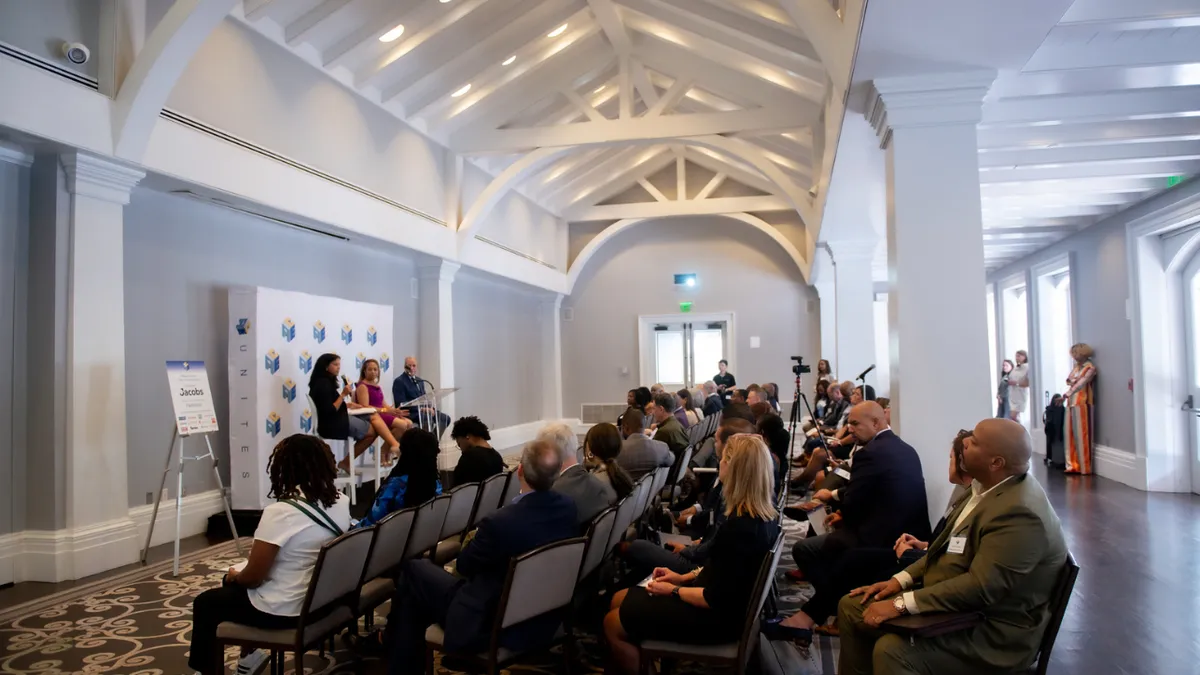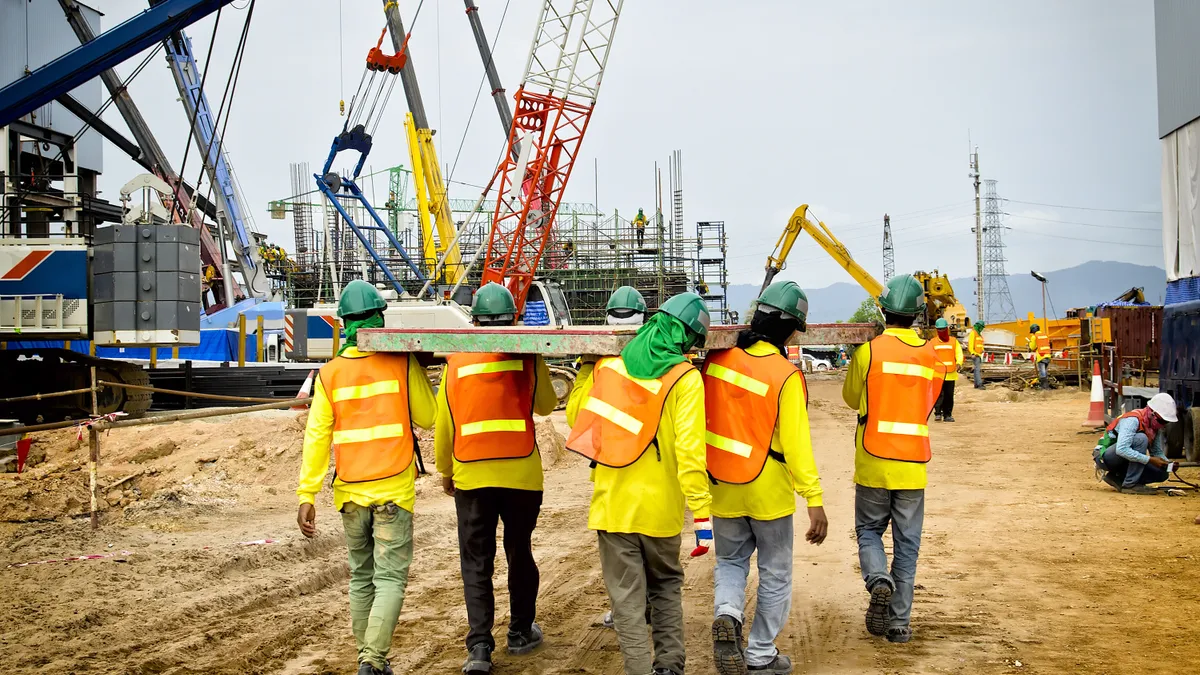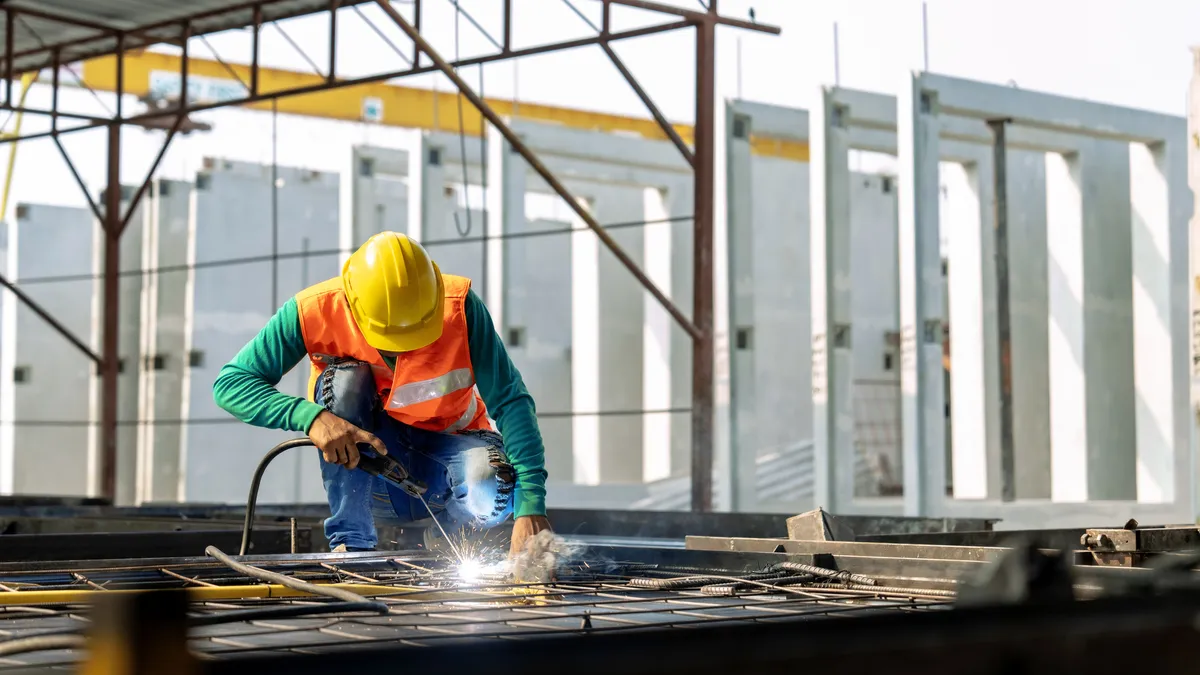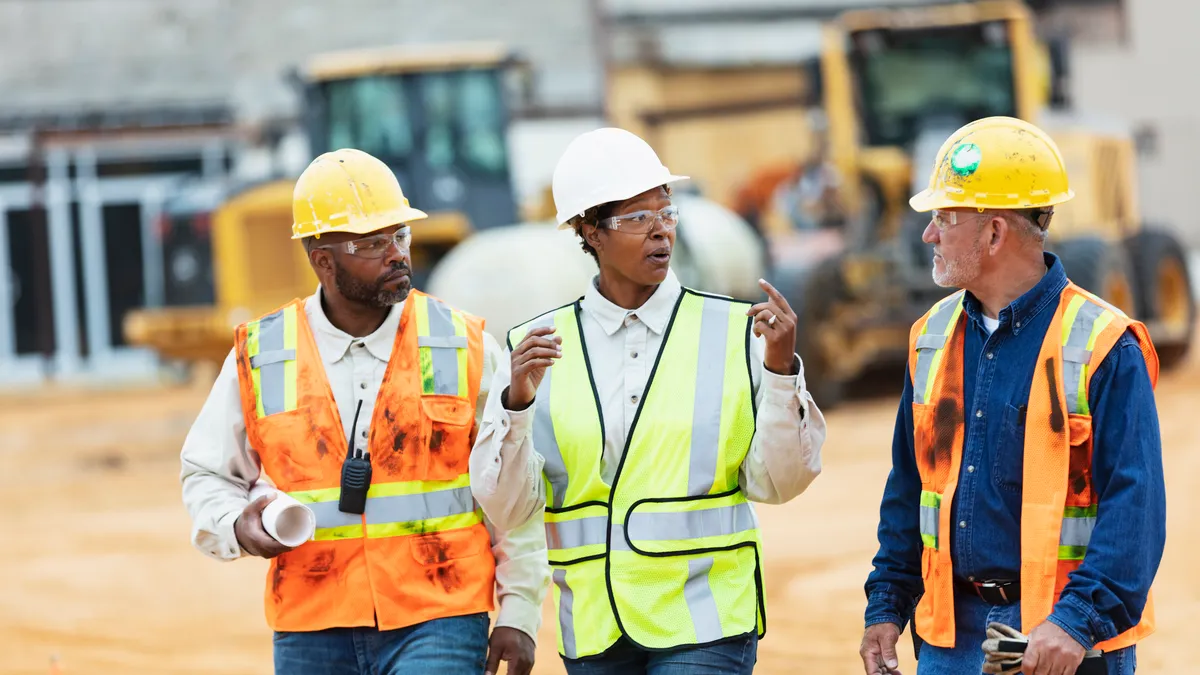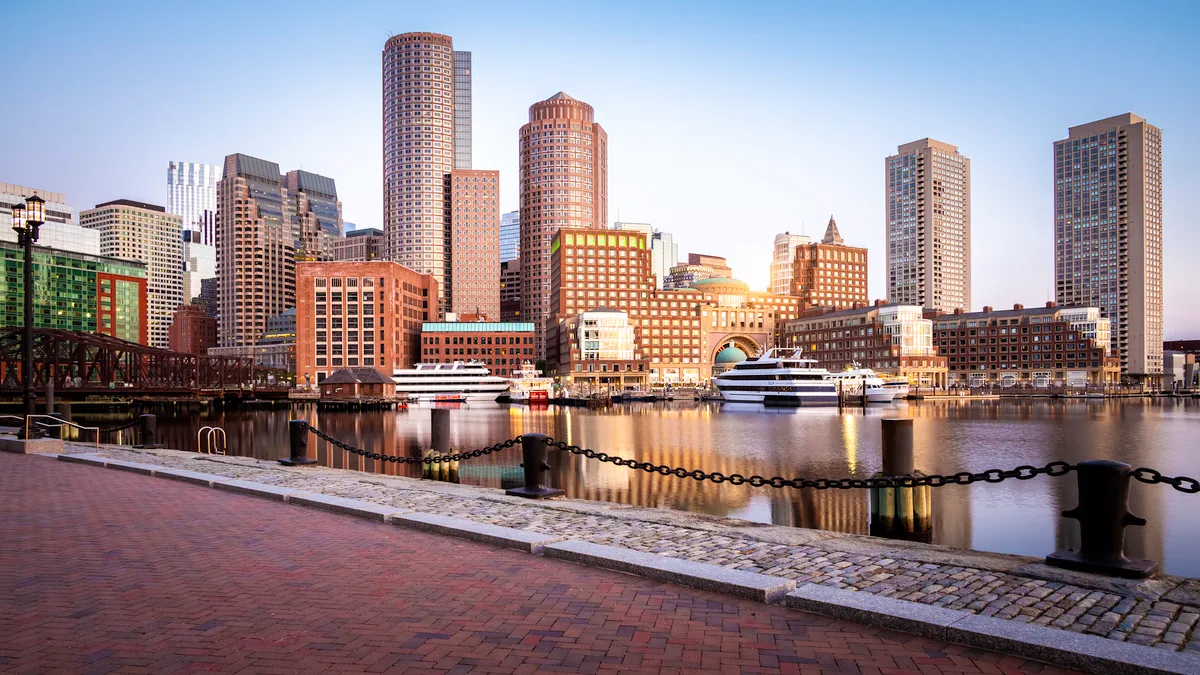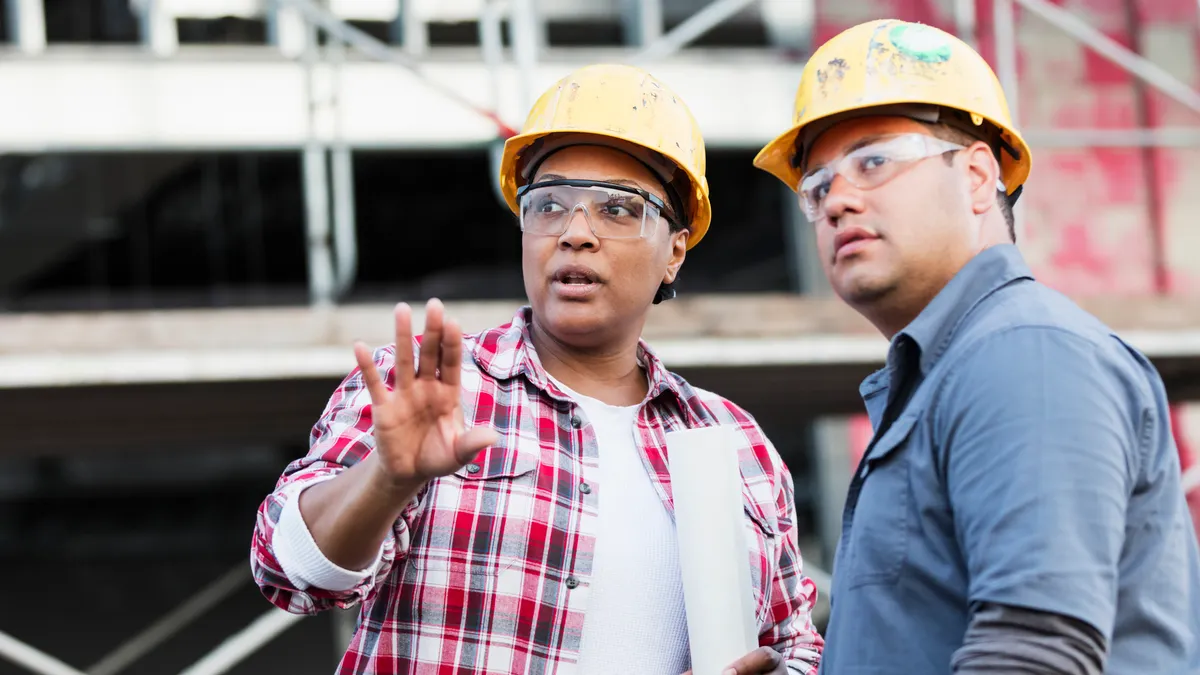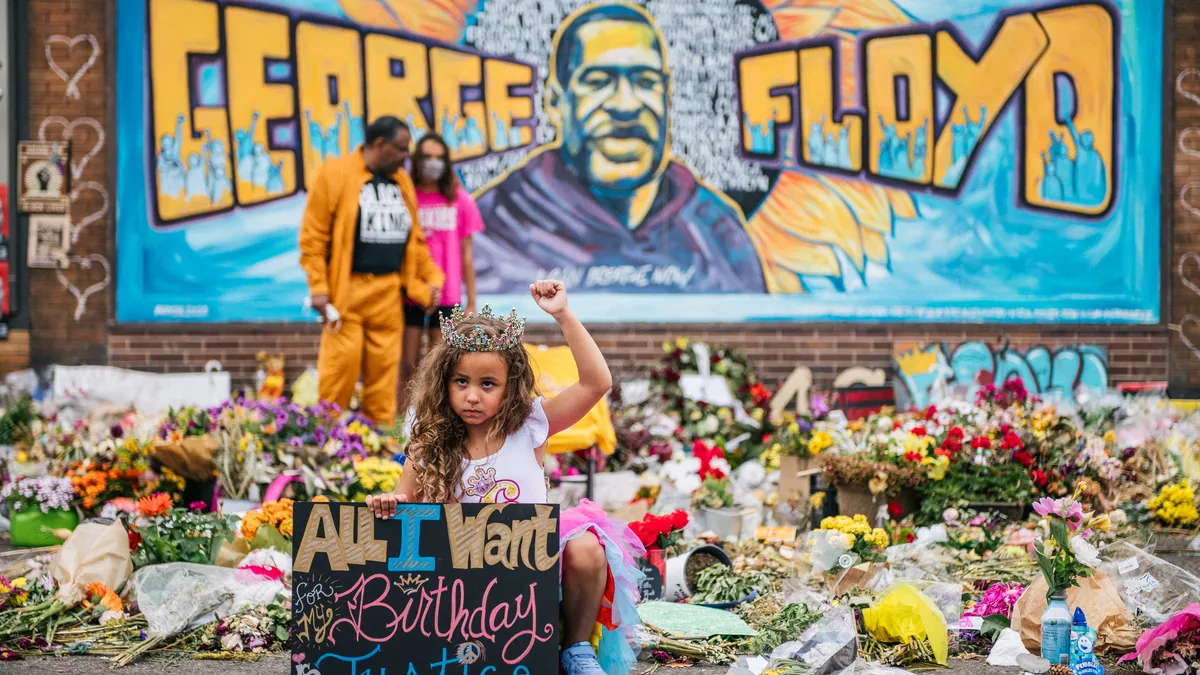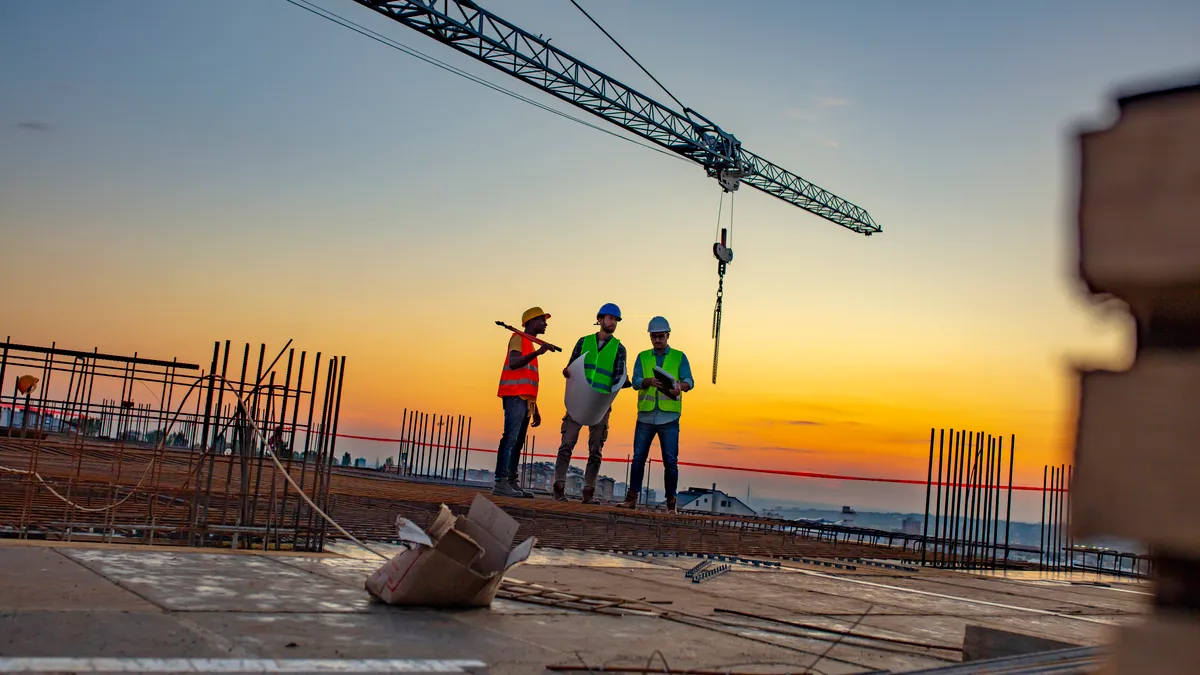Dive Brief:
- Executives from some of building’s most recognizable firms met in Washington, D.C., Oct. 3 to formally launch an initiative aimed at increasing the number of Black workers in the AEC field while elevating more Black-owned firms to prime contractor roles.
- AEC Unites will serve as a resource for Black talent in the industry, the organization said, in order to create sustainable opportunities and support Black-owned businesses. It will offer member companies a database of Black-owned architectural, engineering and construction businesses, a much cited need for prime contractors who want to work with underrepresented companies.
- It will also provide a playbook on how large contractors can more easily work with Black firms, who often face capitalization, certification and cashflow challenges when participating on major jobs.
Dive Insight:
AEC Unites is the brainchild of Deryl McKissack, president and CEO of Washington, D.C.-based contractor McKissack & McKissack, whose great-great-grandfather bootstrapped a construction company once he was freed from slavery after the Civil War. McKissack said she was moved to create the group in the wake of George Floyd’s 2020 murder and the frequent display of hangman’s nooses on construction jobsites.
“I just had self reckoning,” McKissack said. “I asked myself if I was doing enough to make a difference, and started thinking about how I can make our industry more equitable and inclusive. It was time for me to speak up for the voices that traditionally had not been heard.”
Three years in the making, the group already finds itself with support from some of the biggest players in the industry. McKissack’s cofounders are Peter Davoren, president and CEO of New York City-based Turner Construction, which led the industry in 2022 with revenue of $16.3 billion, and Steve Demetriou, executive chair of Dallas-based Jacobs, which had $14.9 billion in 2022 revenue.
Members of the group’s founding board of directors include:
- Hensel Phelps President and CEO Mike Choutka.
- WSP USA CEO Lou Cornell.
- Gensler Co-CEO Diane Hoskins.
- Stantec EVP and COO Stuart Lerner.
- Moody Nolan CEO Jonathan Moody.
- Clark Construction Group CEO Robert D. Moser, Jr.
- H.J. Russell CEO Michael Russell.
- Former HOK Chairman and CEO Bill Hellmuth, posthumously, following his April death.
The group said it will create more opportunities for Black people and companies in the AEC field through partnerships with historically Black colleges and universities, mentorship, training, professional development and coaching. To fund and achieve those goals, the group plans a robust membership campaign. It has also has developed a set of recommended actions for its members to follow.
While an increasing number of billion-dollar projects include workforce participation goals for underrepresented populations, a common challenge for prime contractors is finding certified minority or women-owned businesses in the communities where projects are built who also have the capacity to perform the work on large jobs. AEC Unites looks to narrow and bridge that gap.
A White House connection
The group also has the ear of the Biden administration, which has pushed to distribute more of the $1.2 trillion in funding for the Infrastructure Investment and Jobs Act to underrepresented communities, especially for people of color living in the neighborhoods that projects impact.
In that vein, Mitch Landrieu, former mayor of New Orleans and President Joe Biden’s infrastructure coordinator, addressed the group during its kickoff meeting. He described an insight he had about the importance of diversity he had while talking to a high school girl in Kentucky during his travels for the administration’s infrastructure push.
“She said out here, talent is equally distributed, but opportunity is not,” Landrieu said. “That is the best summation that I can come up with for the 30 years of work that I've done in government.”
He told the group’s founding members that its mission was integral to rebuilding the country’s infrastructure, and aligned with the administration’s goals.
“Diversity is a strength, not a weakness,” Landrieu said. “And in order to unite the country, in order to restore the soul of the country, we have to have a project to work on together. And that project is going to be to rebuild America.”
Distinct from Construction Inclusion Week
While other initiatives such as the industry’s Construction Inclusion Week look to broaden diversity in general in building’s ranks — 87% of all workers in construction jobs are White — AEC Unites is specifically targeted at Black contractors.
According to the Bureau of Labor Statistics, while Black workers account for 12.6% of the overall workforce, they represent just 6.7% of all construction jobs.
“AEC Unites right now is mainly around Black talent, and there's a reason for that,” McKissack said during the event. “If you look at minorities across the board, women and Blacks always fall to the bottom. We're always treated the worst. So we felt if we could fix it for Black folks, we could fix it for all people. So we are starting with the most challenging part of diversity.”
Davoren, whose firm was among the founding members of Construction Inclusion Week, said AEC Unites’ focus was distinct from, but also aligned with, that initiative.
“They’re both parallel missions for positive change,” Davoren said. “AEC Unites is a little distinguished in the fact that this is a group of people that we want to expand, specifically for Black-owned companies and specifically for Black people.”



